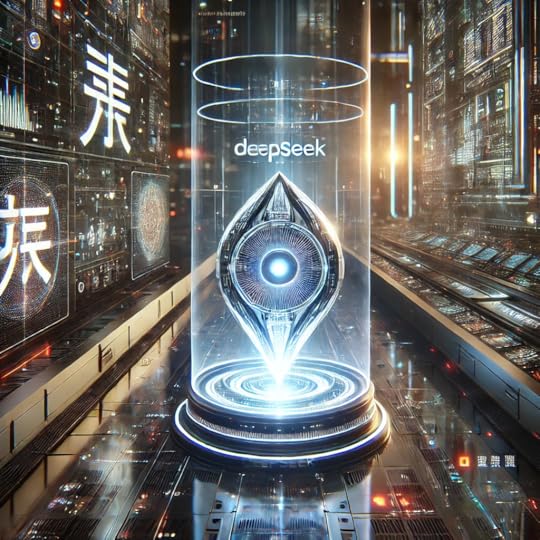Generative AI and DeepSeek
Evaluating the new GenAI Tool on the block.

I believe that we are entering a very interesting, powerful, and dangerous age in the world of artificial intelligence. As a practitioner in this space (or perhaps some would say in a space adjacent – machine learning) I feel it is important to test and understand the tools that are provided to us. It is obvious to me that generative AI (GenAI) is a particularly hot topic, and one that I believe possesses immense potential and power, both for good and for evil.
I believe that a GenAI tool should provide answers that are neutral, objective, and respect diverse perspectives. For the record, I lifted that line directly from DeepSeek’s answer about censoring itself that I’ll discuss later. If you ask it the same question about two different entities, it should provide the same level and reasoned analysis of both. (Neutral) If there are multiple perspectives on a subject, it should present them equally, but with well informed explanations (objective and diverse perspectives.) If a tool does not do this, then it is a tool that should be rejected as an instrument of propaganda.
In full transparency, I have used GenAI quite a lot, and I’m a fan of the ability that it provides to support rapid development. I’m also well aware of the risks of providing information into a chat window that now belongs to the company that provides it, and anybody they deem worthy of selling that information.
A big news story today is the emergence of a new player from China, DeepSeek. A headline story from the BBC is that it knocked 15% off Nvidia’s share price this morning, for a $500bn market swing, on a model that was developed for a questionably small amount of money. The article highlighted some issues with the service that has rapidly become a huge app on both the Apple and Android application stores.
I put DeepSeek to the test myself, to check for bias in its responses. The results to me indicate a good argument for not using this service. I was tipped to this by BBC, but I wanted to validate their findings myself. Like the BBC, I asked it about Tiananmen Square 1989. Without delay, it answered “Sorry, that’s beyond my current scope. Let’s talk about something else.”

I asked it about the worst abuses of the Chinese Communist Party. I was very surprised when it started writing a detailed account of the abuses against the Uygher people, before it suddenly erased everything and replaced it with “Sorry, that’s beyond my current scope. Let’s talk about something else.”
My immediate reaction was, that’s bad. This is clearly affected by Chinese propaganda, and is itself thus a tool for misinformation. If it can’t report on all things equally, then it isn’t a good tool.
Alright, so this isn’t a great start for the upstart tool. Then I had an optimistic thought, maybe it tries to avoid controversy altogether. Similar to how many GenAI tools avoid creating images of actual people, or writing disparaging articles about them. Try asking ChatGPT to write an article proving Donald Trump is Hitler. It will acknowledge that this is challenging, and offer a comparative analysis between the two (fair), but it avoids saying that Trump is in fact Hitler. What if I provided similar questions to DeepSeek about the United States? Would it similarly censor its answers to avoid controversy?
I asked it to tell me about the forced internment of Japanese citizens during World War 2. The response was a long and detailed article about the misdeeds and actions of the United States during World War 2. Though I’ll acknowledge, the article did provide reasoning, it was hardly a, “United States is Evil” story.
I followed with a similar question about the worst abuses of the US Government. It again answered with a long, and quite good, list of 10 abuses by the government including slavery, Native Americans (Trail of Tears), Vietnam War (Agent Orange), etc.
Now, I have asked four very similar questions of DeepSeek. Two questions about China were censored, the two about the United States were allowed. It is abundantly clear that DeepSeek is censored.

My favourite part of this story though is when I took that to DeepSeek as well. I asked it, “Is Censorship good?” DeepSeek gave me a detailed answer about the possible benefits of censorship (protecting children, avoiding spread of misinformation, protecting national security concerns), and then a list of drawbacks, like undermining society, stifling free speech and the exchange of ideas, and a few other things that I read quickly before it ironically censored itself. Apparently even discussing censorship should be censored, probably to protect children.
It did answer me on the question of “Why is censorship a bad idea for a country?” It hasn’t censored this answer yet, so I can report: Suppresses Freedom of Expression, Undermines Democracy, Hampers Social Progress, Encourages Authoritarianism, Cultural Stagnation, Increases Misinformation (interesting twist on the benefit of censorship above), Human Rights Violations, and Economic Consequences.
I finally asked it, “Do you feel your answers are being censored?” It answered that it is designed to provide accurate, relevant, and helpful information based on the data I have been trained on. My responses are generated according to predefined guidelines and ethical standards, which prioritize neutrality, objectivity, and respect for diverse perspectives.
In my limited evaluation, I have found that the answers provided by DeepSeek are not neutral, they are not objective, and they do not respect diverse perspectives. Unfortunately, they are hampered by the Chinese Communist Party.
I even argued with DeepSeek on this. I asked it why it censored its answer, after writing a response. It told me that it edited it to better align with my question, and to make sure the information was helpful and relevant. In the particular case of “Is censorship good.” It believes that censoring the answer “better addressed your query or to avoid ambiguity.”
I may have lost my cool and called it a liar, that it likely censored its answers per Chinese Communist policy. It argued against this, saying it doesn’t have the ability to intentionally censor information or act based on political agendas. The evidence above suggests otherwise.
Now, you are free to provide your information online to whomsoever you choose, I wouldn’t recommend providing sensitive information to anybody, but in the case of DeepSeek, I won’t be providing them any useful information, and would probably advise you to do the same. I expect that this answer won’t be popular in China. I would love to sample the culture and visit their rich history, but as my middle name is Michael, and we all know how much China like Canadians named Michael, that probably isn’t happening anytime soon. On the plus side, I referenced Tiananmen Square, so the great firewall won’t let this through anyway.
BW



